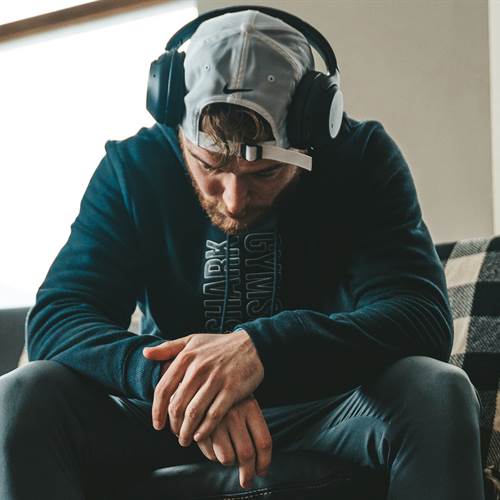
From Singer to Musician: A Talk with Arbender Robinson
Posted Monday, December 6th 2021 by Meredith Davis
Broadway veteran and NYVC instructor Arbender Robinson takes us on his own journey of vocal mastery!
Where did you start on your performance journey?
I grew up singing. There are those lucky few that started singing and work when they were five. As for me, I was in the church choir and did plays and musicals in high school. But I started training in college. And learned about proper diction and placement, how to read music and scales.
Post college, I was hired by Disney to sing with Voices of Liberty. That’s where the training really began. Where to match pitch and match vowel sounds. Not to be just a singer but a musician. And then the more training that I received the more I had to translate what that training meant.
When I got to Broadway, the training continued. Then it became more about style. I learned from those around me who were masters of their craft already.
What is mastery to you?
Mastery is an understanding of where you are in your skill set and your craft. To hone what you understand and seek out the things that you don’t. Especially being honest with yourself on the things that you don’t know.
What do you still struggle with in your vocal practice?
I struggle with dialect and accent work. I spent so much of my training was getting rid of my Chicago accent. It’s a huge mountain to climb and relearn what comes naturally.
I also struggle with embracing the lower register of my voice. I have a great upper register and that’s usually what I’m hired to produce. I have to constantly go back and maintain the lower register. If I’m learning a new song, I’ll even start singing it and then take it the octave up.
What are your daily vocal practices? And other practices for good vocal health?
I used to think that warming up, hydrating and getting rest was all I needed. But after I took NYVC’s workshop with Dr. Michael Pitman, I’ve started embracing warming up in a new way.
To warm up at the same time, the same way every day. And that way I know exactly when something is wrong. It becomes habit, part of my everyday routine. And now because it’s part of my everyday routine, my brain doesn’t have to shift into ‘work gear.’ I feel like I’m always in the mood to work and play!
Warm ups do not need to be long and extensive. Just do some scales or hum a simple song. Warming up is not the workout. We’re getting ready for the workout when we sing the song.
Sometimes we forget what the vocal exercises are really for. They are for connecting the breath, the tone and the pitch to our words. If we know what the exercise is tackling then we register it and we don’t have to do as much. This is a more effective use of our time.
The warm up is not the marathon. The performance is the marathon.

Meredith Davis
Meredith is the Studio Manager at New York Vocal Coaching, as well as an experienced actor, director, and choreographer. She served as the director of Musical Theatre for the North Carolina Young Artists Program. During the summer of 2011, 2012 and 2013, NCYAP traveled internationally to Bulgaria and Italy to perform her works. She has also worked as the Assistant to the Producer of North Carolina Theatre where she maintained the daily workings of every production throughout the spring season of 2013.

How to Practice Singing Part VII: Make Practice Habits Satisfying
In this article, Zac highlights the importance of making your regular singing practice satisfying, giving yourself rewards during and after practice sessions, and avoiding shortcuts and unhelpful rewards.

Building Resilience: Sticking with Singing Even When It’s Hard
In this article, we will explore some principles I find useful for practicing singing that may help us overcome a "rut" in our progression toward vocal growth. Practicing singing can at times feel impossible, but a shift in mindset can potentially change that feeling.

Practicing in Your Car: Making the Most of It
In this article, Zac outlines the benefits and limitations of practicing singing in the car and explains how to use this method safely and effectively for light vocal work.